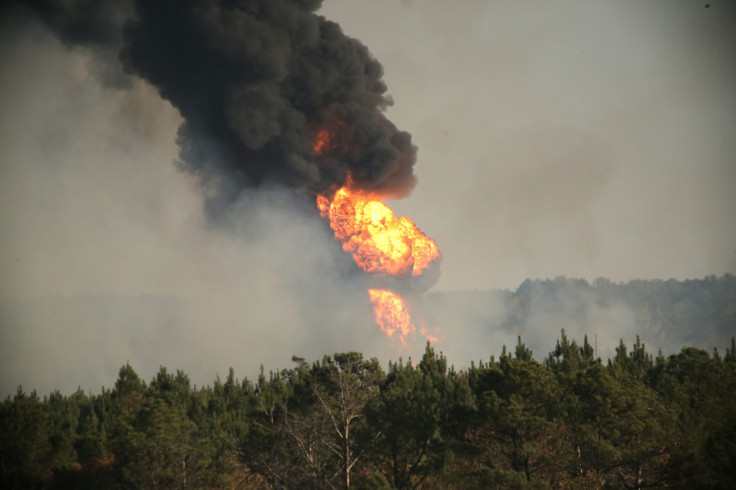Colonial Pipeline blast continues to affect gas prices with reopening set for 5 November
Alabama Governor Bentley declared a state of emergency on Tuesday (1 November).
Alabama Governor Robert Bentley declared a state of emergency in the state on Tuesday (1 November) following a fatal explosion of the Colonial Pipeline on Monday. Officials remained unsure how long the blast, which killed one and injured five, would affect gas supply on the US East Coast.
Bentley said there may be a temporary gas shortage in parts of Alabama and the state of emergency would lift the federal government limit on the number of hours a driver can transport gasoline.
Colonial Pipeline Co. said a nine-person crew was working on gasoline pipeline No. 1 in Shelby County when a track hoe used for excavation struck the pipeline, causing it to explode.
Initial reports said that seven workers had been injured but the company clarified that one person was killed and five were injured. Four remain hospitalised, ABC News reported.
"This is a tragic accident. We had a contractor excavating over the top of a pipeline," Colonial representative Bill Barry said during a press conference.
"Exactly what happened, how it happened, whether there were steps that were missed—these are all things we're going to be investigating over the course of the coming days and weeks. We will learn from this and we will apply corrective actions as appropriate to make sure that this never happens again."
The company shut down several pipelines following the blast. According to ABC News, pipeline No. 1 will likely remain closed until the weekend, while a second pipeline carrying diesel fuel and aviation kerosene was put back up by 11pm EST (3am GMT) on Monday.
"Our deepest condolences go out to the family and loved ones of the deceased, and our thoughts and prayers remain with the four individuals who were injured and who continue to receive care at area hospitals," Colonial Pipeline said in a statement.

The explosion and fire are being investigated by several state and federal agencies. Colonial Pipelines announced that company personnel would respond to the blast, while the US Pipeline and Hazardous Materials Safety Administration (PHMSA) was also looking into the incident. The Alabama Forestry Commission is assisting by monitoring wildfires within the containment lines.
The incident occurred just a few miles from the site of a 9 September leak, which caused the pipeline to close for 12 days. The leak released as much as 8,000 barrels (336,000 gallons) of gasoline and led to massive lines for gasoline in Georgia, Tennessee and Alabama.
According to The Washington Post, gas prices again soared on Tuesday more than at any time since 2008. Prices rose 15% early in the day but closed up 4.6% at $1.4841 a gallon after the company's announcement that it hoped to reopen the pipeline on Saturday (5 November).
Barclays analysts, however, warned the outage could last longer than expected. "In an optimistic scenario," they said. "Line 1 remains shut for at least another month, as the fire is put out and repairs and safety inspections take place."
The 5,500-mile (8,850-km) Colonial Pipeline is the largest in the US, transporting gasoline, diesel and jet fuel from the US Gulf Coast to the New York Harbour area. PHMSA data reveals the pipeline has experience five spills in Alabama in 2016.
© Copyright IBTimes 2025. All rights reserved.




















